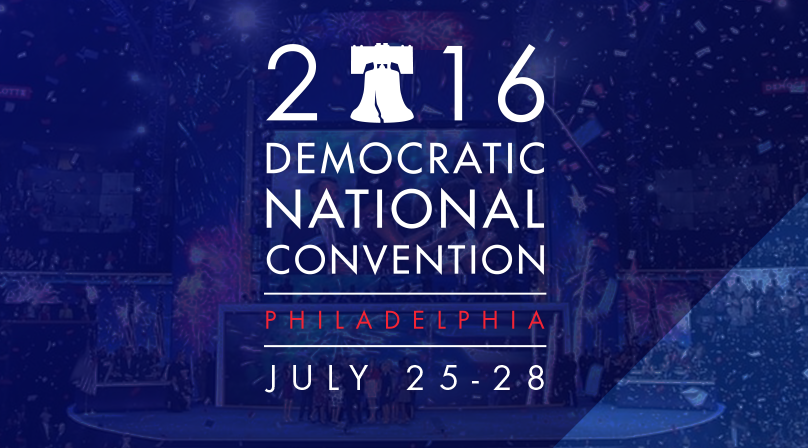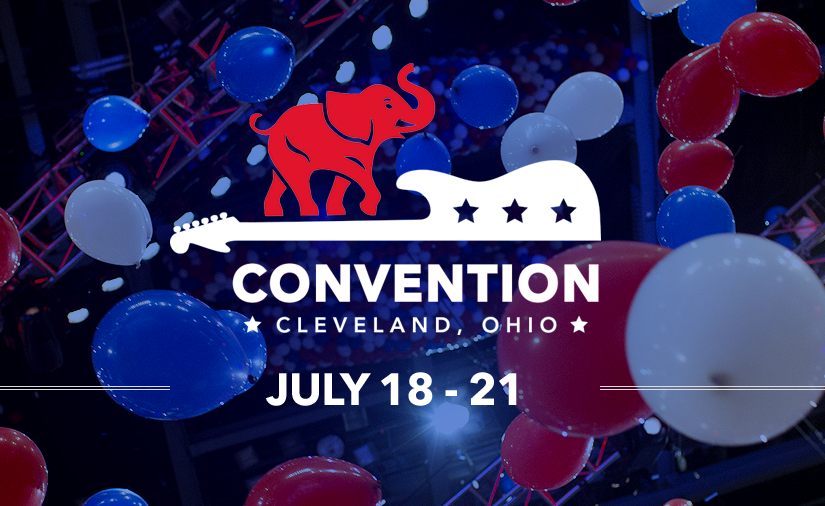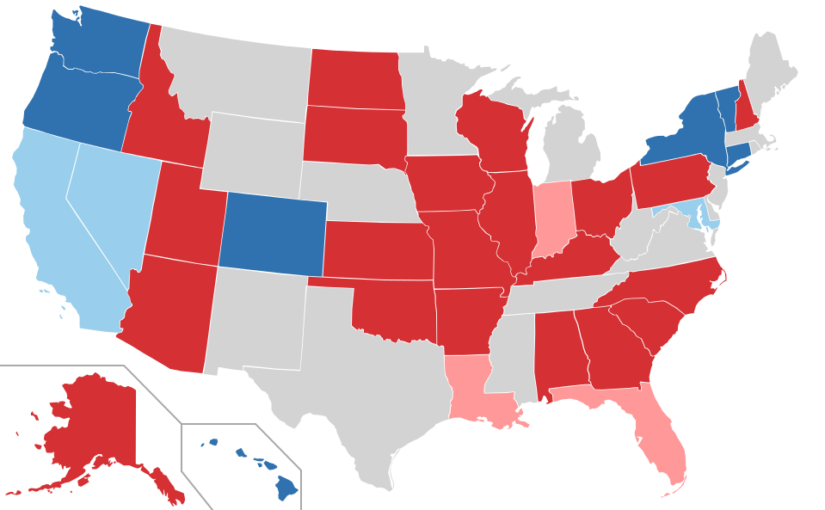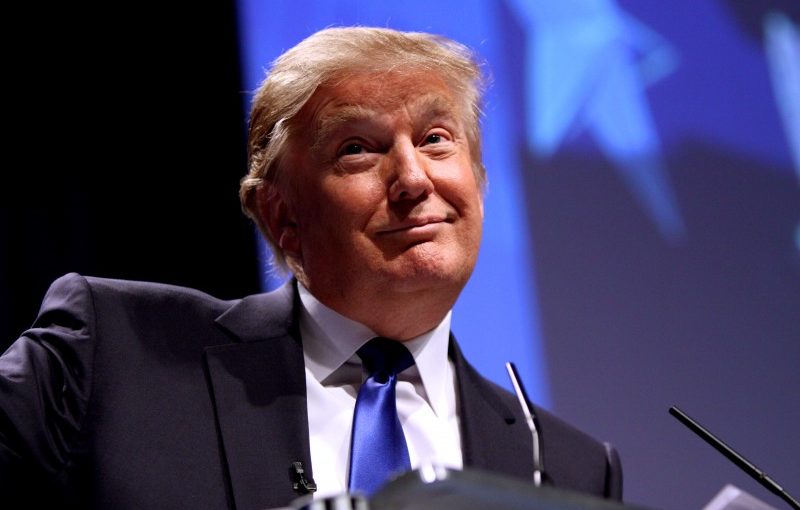Imagine if everyone was ignoring you and just talking amongst themselves. My guess is that you don’t have to imagine it, you can probably remember it.
Category: Case Studies
Sensational Verbal Sorcery
If you want people to hear you, talk. If you want people to understand, simplify. If you want people to remember, sensationalize!
When I say sensationalize, I don’t mean “sensationalize.” I don’t necessarily mean sensationalism in the sense of perverting the facts for the sake of shock value.
Rather, sensationalism in presentation skills means that if you want people to remember what you say, you need to add “sensations.” Anything related to your basic senses–sight, sound, touch, taste, smell–automatically bypasses the conscious mind and directly targets the listener’s subconscious.
When you engage the subconscious as a public speaker, you always leave a bigger impact, because in addition to a logical argument, the listener can FEEL (i.e. sense) your message.
One Minute Speech Case Sudy
Do you actually believe reality TV is reality?
Last week, my kids were watching “America’s Got Talent.” I happened to catch the introductory video of one of the contestants, Jon Dorenbos–an NFL long snapper and magician.
Jon articulated his backstory with such excellent verbal sorcery, that I had to share:
There is definitely some reality involved, but don’t believe for a second that every contestant is just some average, ordinary, inarticulate nobody.
He did this quick little speech so well, that I had to look him up. Surprise, surprise, he’s actually a professional speaker!
Public Speaking Sensationalism 101
How does he make you FEEL his words?
 Simple. Instead of just TELLING you his message, he describes the message in words that create a SENSORY experience.
Simple. Instead of just TELLING you his message, he describes the message in words that create a SENSORY experience.
In the SpeechDeck Public Speaking skills program, the technique of adding sensory description is one of the primary presentation skills categorized under the violet “Engage the Subconscious” principle.
Here’s a short transcript of his one minute speech with my commentary in brackets:
As a little boy I had two loves–one was football and one was magic. Since I lost my mom as a kid, magic gave me hope, magic gave me love, magic gave me life. [His stage magic is based partly on verbal sorcery.]
[Begins unnecessary intro] Both of these things made me who I am, and so now it’s as if my whole life has come full circle and I’m coming back to that moment where magic and football meet on the same level. [End unnecessary intro]
I’ve been able to perform at the highest level for 14 years in the NFL and it is awesome. [Because the word AWESOME is SUBJECTIVE it triggers the subconscious with anticipation.] As you walk out of an NFL tunnel, everything just becomes still. [He uses the UNIQUENESS of personal NFL experience to build anticipation and reveal part of himself] It’s the calm before the storm. [He makes a clear thematic statement.]
And then, as soon as you run out [phrased from listener’s perspective]–wham! [Tactile and/or auditory onomatopoeia–using a non-word WHAM makes it more like an experienced sound effect, and less like a cognitive verbal exercise.] It’s 77,000 people strong cheering [visual], screaming [auditory], taking their hands and banging them against the metal seats [auditory/tactile–without the word METAL you wouldn’t get the auditory]. You just hear that ding, ding. [Again, sound effects rather than words.]
And you get that energy and it feels like an earthquake [tactile metaphor] is just rumbling [auditory/tactile] underneath the stadium as if it’s just gonna shatter and fall apart [visual metaphor]. It is the greatest feeling ever.
[I would recommend Jon add one sentence about coming out of a stuffy tunnel into fresh air and/or a concession filled stadium to add the olfactory sense, however, it’s not absolutely necessary when talking about something like a stadium, because the word stadium by itself comes with those olfactory associations built in.]
I never thought anything could match that, but there’s something about being on the stage of America’s Got Talent. It’s the ultimate accomplishment. [Discloses metaphor]
When I step out there tonight I’m gonna take that deep breathe [tactile]. I’m gonna close my eyes [visual] and feel the hairs come up off my arm [tactile], and it’s gonna be that eerie silence [auditory]–the calm before the storm [restated THEME]–and when my eyes are open [visual], it’s game time [repeated metaphor], and I’m gonna love every single second.
Whatever you might think of his stage magic, this is the work of a verbal magician. Jon Dorenbos is a very talented verbal sorcerer (aka: public speaker).
It’s NOT an Accident
Can you do it in your presentations? Of course, but don’t believe for a second that this is just happenstance.
The subconscious impact garnered from adding sensory experience to your presentation is so effective, that corporations, marketers, and professional speakers pay writing consultants big bucks for this very reason.
don’t
tell!
On the first day of class, every good writer learned the cliche “show, don’t tell.” In a writer’s world, one of the easiest ways to do that is with sensory description.
In an ideal setting, for maximum impact, you would actually give your audience real sights, real sounds, real smells, real taste, and real tactile experience. Unfortunately, with public speaking skills, were often limited to verbal descriptions of the same.
Jon Dorenbos and other successful professionals are not accidentally describing things this way. The marketers who use this technique are not stumbling across effective words. They know EXACTLY what they are doing. They are doing it purposefully and intentionally.
They are doing it because it works–it makes you remember them, it makes you vote for them, and it makes you buy their stuff!
So what is a presenter to do when you can’t deliver tangible experience? Deliverer sensational verbal sorcery.
Hillary Hijinks: DNC Manipulation 2016
As promised, here’s my analysis of the Democrats attempts to persuade. Hillary is in trouble.
Trump Savvy: RNC Manipulation 2016
I promised months ago to show you how this year’s presidential candidates are trying to manipulate you. Let’s quickly dissect some highlights of the 2016 Republican National Convention. Continue reading Trump Savvy: RNC Manipulation 2016
You are Being Manipulated, part 2
Regardless of who you support in the US presidential election, if you’re anything like me, you’re sick of it already–and there’s still almost 8 months to go. Every candidate hires consulting firms that know how to manipulate your brain, but only one candidate this year knows how to do it himself.
Donald Trump.
I know, I know. I’m tired of it too, but Trump is sooo good at psychological manipulation, that I have to cover it. I know this is not a political blog; it’s a public speaking blog, but if you learn only a fraction of what Trump knows, you will become an amazing speaker. Rather than drag this out over months, I want to expose Trump’s secrets all at once today, so that we can move onto something new.
“Psychological manipulation” is the secret to a great speaker. Just like when you sit down in a movie theater and willingly give you mind over to the movie, when you sit down to listen to an inspirational speaker you WANT the speaker to pull your heart strings, keep you attentive, and take you on a ride.
In that sense, when I say Trump is a great “manipulator,” that is not necessarily a criticism. Read the techniques below and you decide whether it is good or bad.
Either way, Donald Trump is a persuasive genius.
If you do not agree with that statement, that is most likely because you are not his target audience right now. If he doesn’t sound persuasive to YOU, it’s because he’s not talking to you.
So rather than talk about the politics of it, I want to share 15 manipulation tactics used by Trump, and focus on what YOU can learn from it to become a better presenter and take your communication and public speaking skills to the next level.
Normally, I wouldn’t reveal so many of my secrets in one post, but we may never have another example like Trump. Therefore, I’ll go deeper than just the 8 basic SpeeckDeck principles. The techniques below are based on specific “skills,” each of which I categorize under one of the 8 principles.
C Clarify Your Content
1. Headline
The Donald constantly gets accused of using simplistic language. This is not because he’s stupid, it’s because studies show that simple language persuades better than complex language.
While I cannot endorse this YouTube channel in general, this particular video is right on.
The video shows how Trump uses short rhythmic sentence structure, simple language, and emphasized keywords.
Here are his common themes:
- “We will win, and we will win, and we will win”
- “We will make America great again”
The other candidates rattle off dozens of points, thinking that more is better. Trump makes many points but relates them all back to just one emphasized theme. If you watch the video you’ll see how he uses short clear sentence structure and emphasizes specific keywords.
Takeaway: Tie everything to a single takeaway message.
2. Storyline
Most politicians give talking points. Donald gives points too, but with every point he tells a story:
- America used to win.
- We are now losing because of <fill in the blank>.
- Elect me and we will win again.
It’s not about the facts; it’s about the story. The most important part of telling a story is dramatizing the “bad guy.” If you don’t have a “bad guy,” you don’t have a story.
Takeaway: Turn your message into a story with an enemy and a transformation.
3. Illustrations
Illustrations are the details to prove your headline. Donald gets criticized for not giving details. He’s actually avoiding details on purpose. Countless psychological studies have shown that people don’t make decisions based on rational information. People use information to JUSTIFY their decisions. (See Big Lie and Big Lie pt 2)
When you don’t understand this principle, you will criticize Trump for giving contradictory answers:
- “Knock the crap out of him” vs. “I certainly don’t condone that.”
- “I’m totally against abortion having to do with Planned Parenthood” vs. “Millions and millions of women … are helped by Planned Parenthood.”
- “Bush lied” vs. “I don’t know if he lied.”
- “I know nothing about white supremacists” vs. “I disavow.”
- “I want talented people to come to this country” vs. “you’re going to have a deportation force.”
Most politicians make the mistake of believing contradictions to policy statements like this actually matter.
Trump knows better. These contradictory statements are no accident. Trump persuades people to loyalty first (see below) then gives them contradictory information. This is brilliant manipulation, because regardless of what you actually believe, you will find a statement from Trump to justify your support.
If you like Trump and you’re a KKK member, you’ll justify your vote because trump didn’t immediately disavow David Duke, and you rationalize that that means he must be a racist like you. “Of course he has to disavow publicly,” you say.
If you like Trump and you despise racism, you’ll justify your vote because Trump did disavow the KKK, all that talk about taking 24 hours to make a statement is just “media hype.”
This duality only works if Trump first makes you identify with him (see below).
Takeaway: Don’t give people information, give them justification.
C Inject Anticipation
 One of Trump’s greatest skills is holding your attention. In fact holding attention is also step one in great public speaking.
One of Trump’s greatest skills is holding your attention. In fact holding attention is also step one in great public speaking.
Check out the tweet from the New York Times at right that shows how much free publicity Trump has generated.
Trump’s free media attention is off the chart.
Here’s two ways he does it:
4. Opposition
Trump is controversial on purpose: muslim bans, Mexican rapists, torture, etc. No matter what your opinion, hearing emotionally charged language gets you to pay attention, and Trump knows it.
He’s not trying to make everybody like him now, he’s trying to monopolize your attention. Here are some more toned down ways he introduces opposition:
- “I know it doesn’t sound presidential … “
- “You’re not going to like it, but …”
Takeaway: Tease the listener with something they have strong feelings about and they’ll keep listening. (See this post)
5. Novelty
The reason that controversy doesn’t hurt Trump is because he changes your focus constantly. Most speakers are afraid to make a mistake. Trump doesn’t care, because he constantly interrupts with something completely new.
Watch any trump interview or rally, and it seems like he’s scatter-brained, interrupting others and even himself with random interjections.
This is not an accident. Not only does he control the media this way, he controls you, by preventing your rational mind from dwelling on any one statement (other than his headline) for more than a few seconds.
Whether you like him or not, you’re brain is continuously and subconsciously asking: “What will he do next?” and you keep listening.
Takeaway: Continuously inject the new and unexpected.
R Develop Relationships
The “Relationships” (or Social Identity) principle is the single most important factor in politics. To have great persuasion or public speaking skills you to find a way to identify like-minded groups from the lectern.
6. Profiling
Profiling might sound like a bad word, but psychologically speaking your brain makes judgement about people–whether you like it or not. The single most powerful persuader is not logic. The most powerful way to persuade is to demonstrate that your position is consistent with the listener’s social identity.
All the Republicans who are attacking Trump don’t understand this, or they wouldn’t attack him. Trump has defined basically 2 group identities: 1) “People who put America first” and 2) “People who are strong.”
He’s done this by labeling all of the “out-groups.” (See “You are being manipulated, part 1“)
Here are the groups that are weak and don’t put America first: Media, Politicians, Republicans, Democrats, Muslims, illegal immigrants, etc…”
Every time someone like Mitt Romney who self-identifies as a “Republican” bashes trump, Trump followers become more loyal to Trump. Why? Because the in-group is “America over party,” and when the anti-trumps promote a “party first” candidate or mentality, it only reinforces Trump’s message. When I coach or teach classes, I often use Mitt Romney as an example of what NOT to do. His obvious misunderstanding of this principle compared to Obama is what lost him the election.
Trump seems to be the only one smart enough to know that in-group loyalty wins over logic EVERY TIME. He is laughing all the way to the oval office, because his opponents are actually helping him!
Takeaway: Label the in-group and the out-groups.
7. Association
If you pay close attention, you’ll see that every individual is placed into one of these groups, guilt by associations.
- “Politicians are all talk and no action.” (weak)
- “I will be the greatest jobs president God (strong) ever created.”
- “[China] (Not america/strong) … they kill us. (America/weak)”
- “I don’t have time for political correctness” (strong v weak)
- “I don’t have to give you a website [like my opponents] (establishment/self first) because I’m self-funding my campaign. (america first/strength)
Takeaway: Make sure you share a group identity (and enemy) with the listener.
8. Conformity
The great irony of all great persuaders is that they get you to conform to the in-group in the name of “anti-conformity.”
Think hand raises, repeat-after-me, ritualistic reactions to protesters, etc. In fact, to a Trump loyalist, there is actually a stigma on anyone who disagrees or leaves the fold. That is the very definition of conformity, all done in the name of non-conformity.
That’s why using the power of social identity is the most effective way to manipulate others.
There’s a reason why he’s constantly quoting polls and telling you who “agrees” with him. It’s one of the most commonly known influencers called “social proof.” Your brain has a built in shortcut, if a decision has to be made, and you have doubts or not enough information you will defer to the group’s decision:
- “No matter where we go we have massive crowds.”
- “I went through the roof in the polls”
- “You’ve been reading a lot about …”
- “I have the biggest business people in the world endorsing me.”
The irony of this technique is that it works best when it’s NOT true. When he says “You’ve been reading a lot about …” the truth is that almost none of us have been reading it, but we all feel like we’re the only one–after all, he says everybody has been reading it. Putting you in that position of perceived ignorance, only increases the likelihood that you will defer to “the group” that Trump just invented. You’re more likely to defer to the group because you have no information about it, but apparently the group does.
Takeaway: Create expectations to which the whole group must conform.
M Reveal the Messenger
This “Reveal the Messenger” principle is one of Trump’s greatest strengths. At any presentation, you have to be (or at least appear to be) authentic and unique. When I coach public speaking skills, this is usually at the top of the list.
9. Ability
What is amazing to me is that Trump reveals his uniqueness in a way completely different than I usually coach others to do. He succeeds because he knows how to play to his own strengths.
Whereas most politicians are afraid to let us see anything unscripted for fear of failure, Trump will tell jokes, go without a teleprompter, improvise, etc. He does this because he can! The reason someone like Obama doesn’t go off script is because he’s not as good off-script.
Trump plays to his strengths. He intentionally creates press conferences and events in which his talents shine, and avoids venues where his talents don’t.
He’s not great with details or political experience, so what does he do, he shows off his own strengths: quick thinking, trump-isms, humor, business experience, etc.
Takeaway: Show off.
10. Authority
Perhaps more than any candidate I have ever seen, Trump creates an air of authority. Notice that he never backs down, never apologizes, and never accepts facts that contradict him–even when he knows he is wrong.
He obviously knows the studies have shown that confidence is more persuasive than truth. The masses follow authority, not truth.
He acts as if he already has the job. He’s accused of being a bully, but he doesn’t care. He defined the in-group (see above) around strength. The end result is that everybody else, including his competition and press back down, and he wins the confidence game.
Most politicians try to prove authority with facts and figures. Trump just assumes authority, no proof necessary. Because he says it with energy and passion, the authority is pre-supposed.
Another thing that works better than truth if you want to persuade someone: celebrity. Is it a coincidence that Trump made himself a celebrity first? NO!
Takeaway: Assume the authority you want others to perceive.
11. Authenticity
I don’t know if Trump is being authentic or not, but he uses two basic tactics to appear genuine.
- Reactions – He makes it a point to react to everything. Sometimes the reaction is imperfect, but that’s okay. He reacts to EVERY insult, EVERY interruption, EVERY accusation, and EVERY inference. Any reaction that is fast and immediate appears unscripted, and therefore genuine. The end result, even if you disagree, you subconsciously perceive authenticity anyway–and this reinforces the “non-politician” group loyalty.
- Values – Psychologically, people will excuse almost any bad behavior if you have justifiable motivations. Listen carefully, and you’ll see that all of his statements laced value based motivations. The values don’t have to be real to feel real. These values are present even if not explicitly stated: excellence, concern for the weak, fun, independence, winning, “I like to solve problems,” etc
Takeaway: Explain WHY, not what.
I Empower the Individual
12. Worth
Every great salesmen knows that you have to give compliments. If you make people feel good about themselves, they will feel good about you. What most people don’t know, is that compliments don’t have to be true to work.
- I love our vets
- I love your sign
- I love your flag
- I love your costume
- I love you
- I love the constitution
- I love the 2nd amendment
If you actually attend a live trump event you will see trump react to individuals in the crowd. He will call people on stage, he will repeat their words, read their signs, and react to their interruptions.
Instead of stifling the crowds, he actually encourages behavior that most politicians would hate. This makes everyone in attendance feel special.
Takeaway: Make them feel good about themselves
S Engage the Subconscious
13. Emotion
Trump does great job at maintaining a tough guy non-emotional image. But don’t be fooled. He’s manipulating your emotions constantly.
One way he does this is by personalizing the enemy. Notice that he doesn’t just criticize “the establishment,” but insults specific politicians. He doesn’t just criticize “the media” but targets specific journalists as enemies. He doesn’t just criticize “the economy” but singles out specific corporations by name.
The more personal the enemy, the more convincing it is. In terms of emotion there’s a lot more we could say. Almost all of Trump’s persuasive is emotional rather than rational, as it should be (if you want to win).
Takeaway: Create a stereotype that people can understand.
14. Sensation
One of the most successful things Donald Trump has done is to make his policies and insults visual.
We’re going to build a wall!
Whether you like it or not, you can picture a wall. What image represents the policies of Marco Rubio? You don’t picture anything do you?
Trump encapsulates his message in something that you can remember and visualize. When insulted by the ex-president of Mexico, trump replies:
The wall just got 10 feet higher!
Is that true? Of course not. The wall will be whatever the budget and congress agree to. It has nothing to do with an insult. But saying that you’ll raise the wall 10 feet is a VISUAL statement, and so everybody cheers, even though in reality the statement has zero practical meaning.
Takeaway: If they can’t picture it they can’t remember it.
15. Priming
As one final example, let me demonstrate how Trump sets you up linguistically.
For example, he loves to give all of his opponents visual nicknames: Low Energy Jeb, Little Marco, etc. Notice that the monikers are always cleverly crafted as “Heads, I win. Tails, you lose.” They are always setups.
For example, when Trump criticized Jeb bush as “low energy,” Trump places Jeb in a no-win situation. If Jeb tries to show more passion, Trump compliments him for trying harder and following Trump’s advice. Trump wins. If Jeb doesn’t show more passion, Trump’s low energy label proves correct. Trump Wins.
Here’s an even more devious linguistic trick: Trump blames “our communist friend” Bernie Sanders for violence at his rallies.
Trump is essentially priming you to agree with him whether you like it or not. Your conscious brain can only reason about one thing at a time, so trump always gives you duality in his monikers that force your subconscious to choose.
By calling Sanders a “communist friend,” Trump forces your brain to ask either, “Is he really a communist?” or “Is he really a friend?”
But Trump wins either way, because by default your brain will accept the truth of the statement it ignores.
If your brain gets hung up on “Is Sanders a communist?” you are subconsciously accepting that he is a “friend.” That helps trump tap into the Bernie movement in a positive way. Trump wins.
If your brain gets hung up on “Is Sanders a friend?” you are subconsciously accepting that he is a “communist.” That hurts Sanders in a negative way. Trump wins.
Takeaway: Control what the listener has time to reason about.
Conclusion
Trump is a master persuader. Most of the things the talking heads on TV criticize him for are not actually mistakes. He is doing those things on purpose, and you are being manipulated.
I have just given you 15 examples that show that Trump knows exactly what he is doing. Perhaps, one or two of these skills are built into Mr. Trump’s personality, but you cannot successfully implement all 15 of these techniques unless you have studied and mastered the art of persuasion.
In truth, there are many other tricks up Trump’s sleeves that we could talk about. I merely tried to focus on the ones that could relate more to great presentations and public speaking.
Does this mean you shouldn’t vote for Trump? I am not saying anything bad about Trump supporters. If you understand that Trump is using these techniques and still wish to support him, you can make a legitimate case for that. Perhaps you think being the best persuader in the room is a positive trait for a president.
This blog is not a political statement, however, in the interest of transparency I will state my opinion. I cannot vote for Trump precisely because of his persuasive genius. When it comes to persuasion, Trump knows more than Obama, more than the Bushes, more than Pelosi, more than McConnel, more than Clinton and Sanders, more than Cruz and Rubio, more than Reid or Ryan, and more than I do.
No matter how good his heart, giving that much authority and power to someone who can manipulate those around him and the public with such skill, scares me. I wouldn’t trust mother Teresa with that power. If Trump wanted to lie, he could convince the whole congress and us of almost anything. I think the president of the united States should be a BAD liar.
If trump DOESN’T win the Republican nomination, it will not be because his opponents succeeded, but it will be because Trump pushed it too far. Cruz and Rubio are completely oblivious to how trump is winning.
They have a shot of winning only because Trump has created such a strong sense of “identity” that the “anti-trump” identity was created with it. In business, a 35% market share is HUGE. In politics, you’ve got to get more than that.
If Trump DOES win the Republican nomination, he will completely obliterate Clinton or Sanders in the general election. In comparison, Clinton and Sanders have virtually no persuasive skills.
A Trump landslide might be hard to believe now because so many people are anti-trump. But let me remind you of my opening remarks: he’s not talking to you yet. Right now, Trump is only speaking to a narrow slice of voters.
The proof of this post will come when Trump actually makes the switch from the primary to the general election. When he starts directing his skills toward you, you will be shocked at how good he suddenly starts to appear.
The other candidates will try to manipulate you too–they’re just not as good at it. Vote for whoever you want, as long as you know you are being manipulated.
Click Here to Subscribe for Weekly Communication Tips
or use the social network links in the top nav bar.
A note on sources: A commenter pointed out some similarities between this post here and Scott Adams’ blog. Please let me address any appearance of plagiarism. I hope this blog is VERY similar to Scott Adams analysis because he is one of the only commentators online who is getting this RIGHT! I discovered his blog shortly after writing part 1 in January 2016. I remember, because Scott and I had noticed many of the same techniques. In particular, his blog mentioned social identity in Trump’s persuasion just like part 1 that I had just written. Without doubt, some of the examples I shared on this page were insights Scott and I both noticed independently, and I suspect one or two actually did come from his blog. I honestly don’t remember. The content that is unquestionably mine is the SpeechDeck system. Years ago I organized everything I knew about attention and persuasion into a system of 21 communication skills. My attempt on this page is only to line up examples of Trump’s words with those principles (shown in headings). I make no claim to have any special insight here. I didn’t plan on writing this. As it turned out I merely felt a responsibility to share these things as a public service. I went through 15 of the 21 principles in my system, and simply shared the first examples that came to mind. This is a public speaking blog, not a political blog. If you want a play-by-play on Trumps persuasion tactics, Scott Adams’ blog is probably the best place I know, and I recommend it.
You are Being Manipulated
It’s election year 2016. I know that you think you will vote for the best candidate. You won’t. You will vote for the best manipulator.











